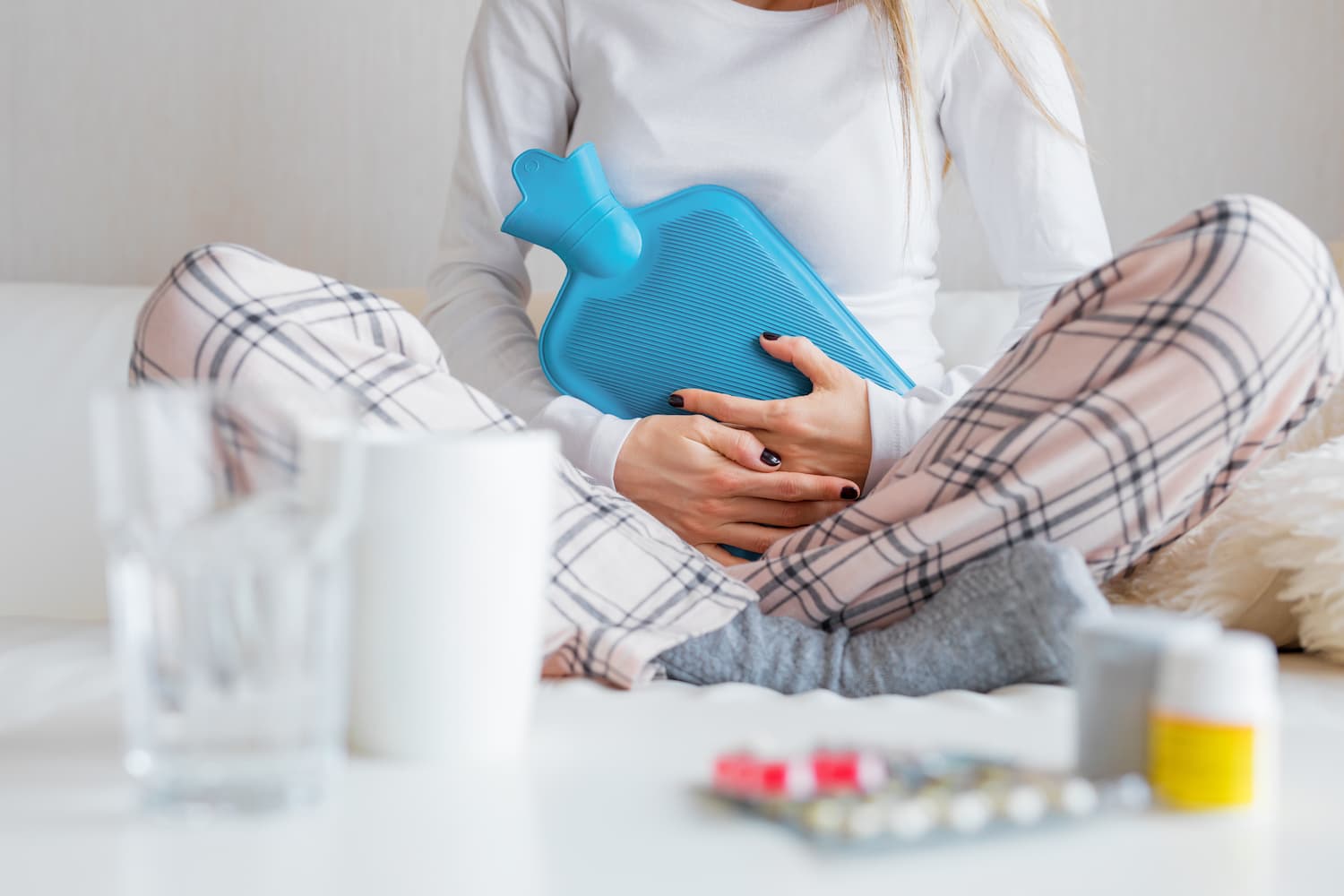Endometriosis
Endometriosis occurs when endometrial tissue, which is similar to the tissue that lines the inside of your uterus, grows in other places, often the pelvis, ovaries, bladder and fallopian tubes. In fact, endometrial tissue can grow anywhere. In rare cases, it has been found in the lungs and even the brain. The cause of endometriosis is unknown, and there is currently no cure, although treatment and management can ease symptoms.

Who is most likely to be affected by endometriosis?
Women and anyone born female of reproductive age can be affected by endometriosis. It’s estimated that 1 in 10 women in the UK have the condition. Endometriosis is more common in women in their 30s and 40s.

What are the symptoms of endometriosis?
Chronic pain is one of the most common indicators of endometriosis. However, not everyone with endometriosis experiences symptoms.
What are the symptoms of endometriosis?
Symptoms of endometriosis include:
- Painful periods
- Heavy and prolonged periods
- Dark blood
- Pain during ovulation
- Back pain
- Leg pain
- Discomfort during internal examination
- Pain during or after sex
- Pelvic pain
- Painful bowel movements
- Painful urination
- Fatigue
- Depression
- Infertility

How do I know that I have endometriosis?
It can be difficult for those affected to receive a definitive diagnosis. One study has shown it takes women an average of 7 years for endometriosis to be confirmed. This is because symptoms can overlap with those of other conditions. An experienced gynaecologist will often suspect endometriosis. Medical history, blood tests and examinations will be taken into consideration. Specialist scanning can detect endometriosis and other rarer presentations of the condition. A laparoscopy - an operation in which a camera (a laparoscope) is inserted into the pelvis via a small incision so the exterior of the uterus, ovaries, fallopian tubes and other structures within the pelvis can be viewed – can confirm the diagnosis.

I have been told I have adenomyosis. How does this condition differ to endometriosis?
Endometriosis refers to when the cells that line the uterus grows outside of it. Adenomyosis occurs when the same kind of cells that line the uterus grow deep in the muscular wall of the uterus, however they do not travel outside as in the case of endometriosis. If you have adenomyosis much of the recommended management of the condition will overlap with the advice for endometriosis.

Can lifestyle changes help endometriosis?
Yes, there is good evidence that suggests following an antioxidant diet (rich in plant foods, such as fruit, vegetables and leafy greens) is associated with an easing of symptoms. Healthy fats like omega-3 fatty acids in salmon, tuna, and walnuts can also help. Avoid processed foods that contain trans fats – one study found that women who ate the highest amounts of trans fats had a 48% increased risk of endometriosis. Many women find cutting out gluten and alcohol helps too. Exercise will certainly aid pain relief. You should look at the cosmetics and soaps you use too – opt for paraben-free products. As parabens –these are chemicals commonly used as preservatives in cosmetic products – are ‘endocrine disruptors’, altering our body’s hormone levels.
Can hormone treatment help if I have endometriosis?
Yes. Women with endometriosis will often have low progesterone levels – this is the hormone that balances oestrogen and keeps it in check. Oestrogen ‘feeds’ the condition, encouraging endometrial tissue to grow. Progesterone can stop the progression of endometriosis. A gynaecologist with a background in endocrinology can prescribe appropriate treatment.
Will I require surgery for endometriosis?
Some women will be able to manage their symptoms with non-invasive treatments and holistic approaches. However, others may require surgery to remove excess tissue. Your gynaecologist will recommend a trusted and experienced surgeon with a super-specialism in laparoscopic surgery.

